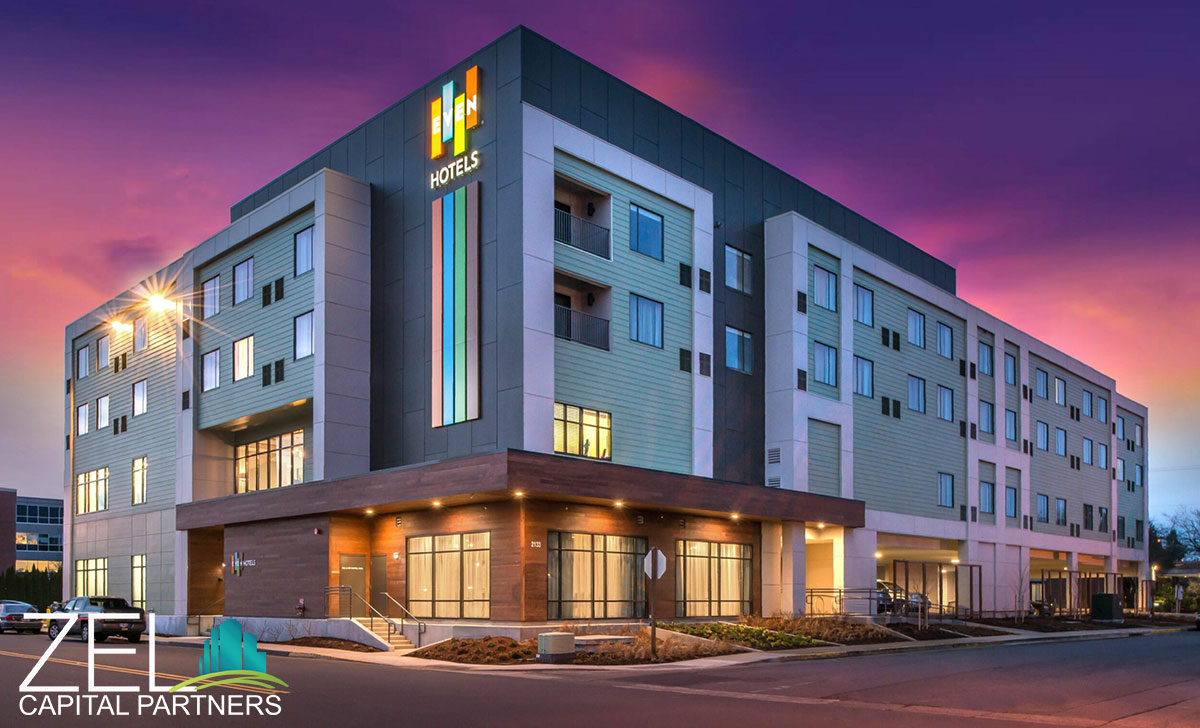
As traditional methods of financing have become increasingly expensive in light of recent interest rate hikes, businesses in many different industries are seeking alternative ways to access capital. For hotels, an innovative arrangement known as a sale-leaseback offers multiple benefits and few, if any, drawbacks. While sale-leasebacks may be suitable for most hotels, they can be particularly beneficial for those that meet certain criteria.
Offering the only true hotel sale-leaseback platform in the U.S., ZEL Capital Partners has guided numerous hotels, ranging from boutique properties to leading national brands, through the sale-leaseback process. If your hotel meets criteria such as the following, you may want to consider this type of arrangement as a means of financing:
You are seeking ready access to liquid capital
In a sale-leaseback, the hotel or other business sells a high-cost fixed asset, such as its building or land, and then leases the asset back from the buyer. The seller-tenant then begins making monthly rental payments to the buyer-landlord for the duration of the lease—which typically ranges from 15 to 40 years—while continuing to operate the business as they did before the sale.
One of the key benefits of this arrangement is that it allows hotels to convert dormant equity in their properties into liquid capital, which can then be used for purposes such as paying down debt, acquiring new properties, performing renovations, returning cash to investors, and more. Since the hotel typically receives the full proceeds of the sale upfront (often 100 percent of fair market value), they are able to readily apply this interest-free infusion of cash to fuel their continued growth and success. Sale-leasebacks also allow hotels to avoid the hidden fees that often come with traditional financing methods, such as those related to call provisions, balloon payments, or appraisal fees. At a time when businesses are facing a much higher cost of capital from traditional lenders, sale-leasebacks may be a particularly appealing option.
As an additional benefit, sale-leasebacks typically have relatively quick, hassle-free due diligence and closing periods, and allow greater flexibility when it comes to customizing the lease to suit the needs of both parties. For example, many transactions include options for repurchase, renewal, expansion, or extension.
You’ve built up significant equity in your property
Since the amount of capital hotels receive through a sale-leaseback is based on dormant equity in the property, this arrangement will work best for those that have already accumulated significant equity in the property asset(s) they are selling. If they have a high leverage to value, there may not be enough equity remaining after closing costs and escrows of property improvement plan reserves or rental reserves to justify the transaction.
You want to retain control over business operations
Sale-leasebacks are sometimes thought of as a way to “sell your business while keeping your business,” since after the sale, you’ll have the right to maintain control over your brand flag, cash flow, management rights, existing franchise agreements, and other aspects of running the hotel.
You want to avoid the pitfalls of property ownership
Given the volatile economic climate of the past few years, many property owners are acutely aware of the risks inherent in owning real estate. By entering a sale-leaseback, hotels will no longer need to worry about the value of their property declining in the future. (On the contrary, it’s worth noting that they will not benefit from any appreciation in value, although this is typically offset by the other financial benefits of the arrangement.) Without the burden of many of the risks and hassles that come with property ownership, hotels will be free to focus on running and growing their business.
Sale-leasebacks can offer hotels numerous financial and operational benefits in addition to those mentioned above. For instance, they typically result in a healthier balance sheet and credit standing since they increase the ratio of the seller’s current assets (cash proceeds from the sale) to liabilities (rent payments are generally not counted as such). Additionally, the hotel’s lease payments to the buyer-landlord are tax deductible, unlike with traditional forms of financing that are subject to interest deductibility limitations.
While sale-leasebacks offer a multi-beneficial solution for many hotels—particularly in the current economic landscape—there are several different considerations involved, and the key to a successful transaction is to seek the guidance of an experienced advisor. With over 40 years of combined experience and over $5.5 billion of financing arranged for our clients, the team at ZEL Capital Partners has the expertise needed to help hotels and investors alike ensure a successful sale-leaseback process. To learn more about whether this type of arrangement may be right for your hotel, contact us today to schedule a complimentary evaluation.
Contact Us to discuss your options for financing your specific needs.
Are you a business owner looking to unlock dormant equity in your real estate assets, or an investor seeking a low-risk, steady income stream?
We are here to speak!
jeffcohen@zelcapitalpartners.com (480) 355-4392
